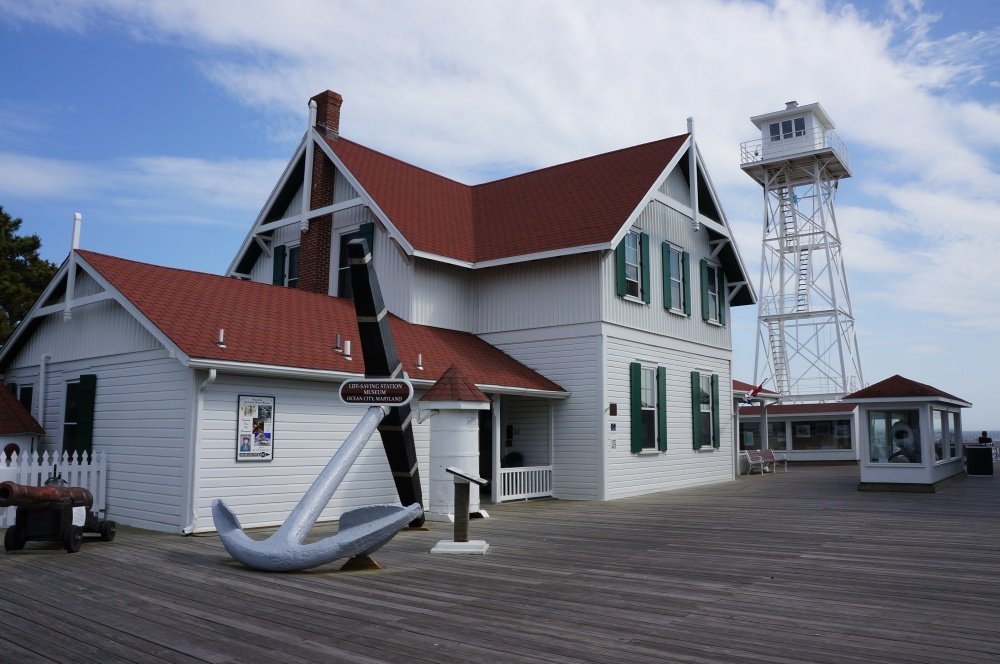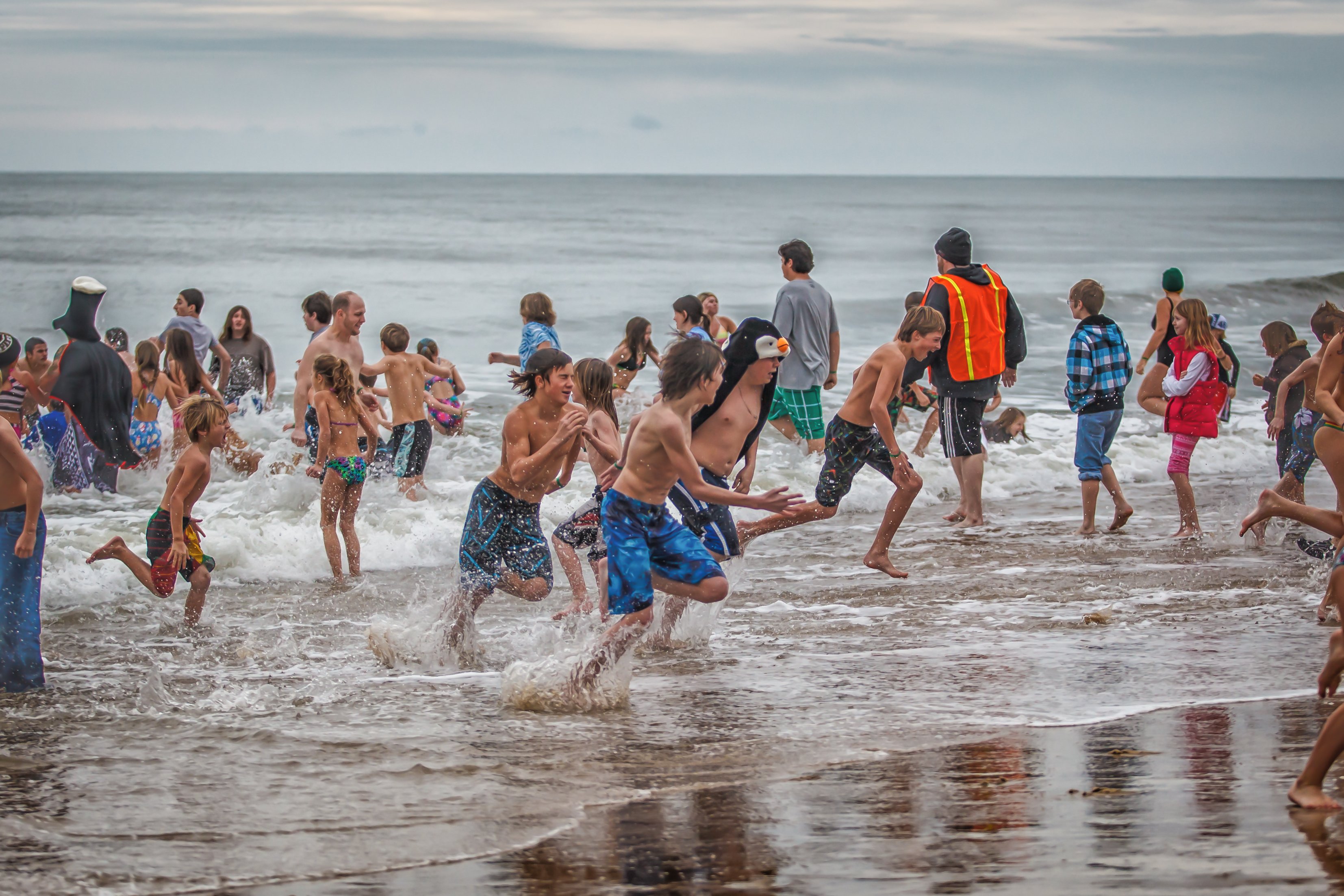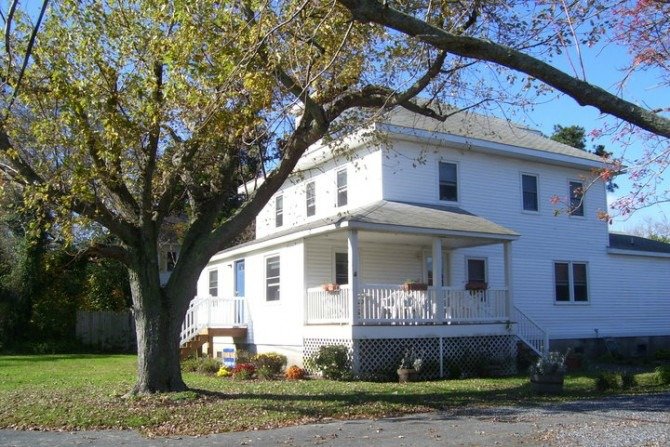Just off the busy artery of Golf Course Road in West Ocean City, MD—which leads to waterfront restaurants, marinas, and million dollar homes in many directions—sits what appears to be a white two-story single-family home. Go back the gravel driveway and you see it’s actually a main house plus cottages, and within those walls 32 people currently reside – men, women, and children, most from Worcester County. But this isn’t an apartment complex, and it’s not a traditional ‘home’ for those living here. It’s transitional housing, a strong sense of community, and a way forward for those fallen under hardship, provided by the charitable organization, Diakonia.
For decades Diakonia has helped those in immediate need for a myriad of reasons – be it food, housing, or simply someone to provide hope. The organization has adapted since its inception to address the needs of the tri-county area it serves.
Back in 1972 Diakonia got its start when a group known as the Boardwalk Ministry Advisory Committee, a faction of the Allegheny Mennonite Church, determined the need for a boardwalk ministry in Ocean City. During the summer months, members of the group patrolled the boardwalk reaching out to troubled youth. The group concluded that there was a very real need for a building to house homeless youth, and eventually purchased a house on Old Bridge Road known as Hekili.
In June of 1973 the group decided to change the name to Diakonia, Greek for “service to others.” The first year, Diakonia was able to house five men and five women with a three-day stay limit. It operated only during the summer months.
Now, 40 years and countless success stories later, Diakona operates 24 hours a day, seven days a week, 365 days a year and can house 40 people. The organization was incorporated in 1987, having separated from the Mennonite Church, supported instead by state and local government, individual volunteers and other charitable organizations like the United Way. Over the years Diakonia has witnessed its guests change from troubled and homeless youth to adults and entire families facing hardship. The main house has been renovated, the cottages added to for transitional housing. In 2003 Claudia Nagle came on board as Executive Director, and began implementing programs like the Homelessness Prevention Program. There have been many changes over the years, but what has remained constant is the need within our local community.
| Below are photos of individuals who have helped Diakonia become what it is today. Volunteers and staff members have supported the organization for the past 40 years. Photos from the Diakonia Facebook page. |
 |
 |
 |
 |
 |
“We have a greater need for housing than what we can support. We turn away around 100 households a month,” says Nagle, discussing the increasing demand.
The soaring demand begs the question as to what the tipping point is—the common factor that sends people to Diakonia? And there is no easy answer. It’s often a combination of things – a prolonged illness and mounting medical bills, a responsible or supportive party gets sick, a job was lost, lack of opportunity for employment, or affordable housing and transportation are suddenly lost or become unavailable. Combine any of these factors in an area where industry is largely reliant upon a resort or seasonal market, and it’s not difficult to paint the picture of hardship. As Nagle explains, there’s often a misconception as to who needs Diakonia’s emergency housing and food.
“We’ve seen a change in who needs it, now two-parent families with children, one or both who are working. People have a stereotype in mind as to who this would be. It’s a thin line. A lot of people are two paychecks away.”
Nagle is quick to point out that there is hope available, and very real ways to move forward, saying,
“When I was new to this, someone told me the Chinese sign for crisis and opportunity was the same. I see this as a positive opportunity for people to make a change. You get them in and get them moving right away. By the time people get to us, they’ve really been through a lot. They need to be picked up and gain confidence again.”
Typically this process starts when an individual places a call to inquire about housing, and they speak with a case manager. If there is space available, the next step is an intake interview where background information is gathered and a service plan is put into place, which addresses the reasons the individual or family sought help in the first place, and provides a way for them to get from point A to point B.
The first few days at Diakonia are spent addressing issues, having medical appointments, and developing a routine that helps to build a positive future. Nagle gives credit to many within the community that make this all possible—doctors, veteran’s services, counselors, even Shore Transit, all who come together to assist those in need.
After the initial phase, there’s a lot of expectation and accountability. Participation in a savings and money management program are required, and individuals in the program are expected to find jobs. Transitional housing lasts on average, 6 months, and 25% of what is earned is paid toward that housing, while 55% is reserved for savings and 20% is left for discretionary use, setting up financially responsible and successful futures for guests at Diakonia.
Aside from personal and financial responsibility, Diakonia functions very much as a community. As Nagle elaborates,
“It’s all hands on deck here – it’s everyone’s home. Everybody has something to contribute; that’s what we try and show them here.”
Aside from transitional housing, Diakonia provides many other services on a weekly basis. The volunteer program works on the food donations; there’s a Prevention and Rehousing program aimed at helping to keep people in their homes; interceding with landlords and utility companies when needed. They also help people find furniture to furnish their homes through donations received. A number of on-site opportunities provide practical life solutions; the health department visits and offers parenting classes, the Job Market comes twice per month. Diakonia is the lone organization in the tri-county area offering all of these services. It sounds like a lot for one nonprofit, and that’s certainly not all of it.
“On many days with all these moving parts it’s just a really good example of what is right with our community,” surmises Nagle.
Out of the multitude of services Diakonia offers, Nagle says that fastest growing program is emergency food.
“In 2009 we distributed about 5,000 bags of food. We are on track to do 20,000 this year, which certainly speaks to the need. We did 600 bags of food last week. It’s early to have such a need.”
Diakonia offers so much to those in need, but if there were one major point to take away, it’s this: those who stay at Diakonia, or receive food or services are members of the local community, and they could be at any point, any one of us.
“It could be your hairdresser, your waitress, your handyman, your daughter’s school mate, staying here,” says Nagle
In order to support their programs, Diakonia takes a creative approach in meeting their expenses. There’s an annual appeal set to begin soon, fundraising events, and a newly expanded thrift shop, in addition to many local contributions from individuals, businesses, and municipalities, and funding through grants. There’s a small staff of 15, five of which are fulltime, and a host of volunteers—all fundamental parts that make Diakonia what it is today—a thriving community of people moving forward. And as Nagle explains while speaking about guests of Diakonia, there’s a lesson here we all can take away,
“People really do grow and are able to share the gifts that they have. People don’t do well when they aren’t able to contribute and give back. Gratitude is key.”
How you can help:
- There are many opportunities to volunteer, call Diakonia’s office to find out more.
- You may also call to inquire about donations needed.
Diakonia Office phone: 410.213.0923
- Purchase items from Diakonia’s thrift store on route 611: Used to Be Mine.
- Appointments must be made to drop off donations.
Visit Diakonia’s website for additional information or like the organization on Facebook.









